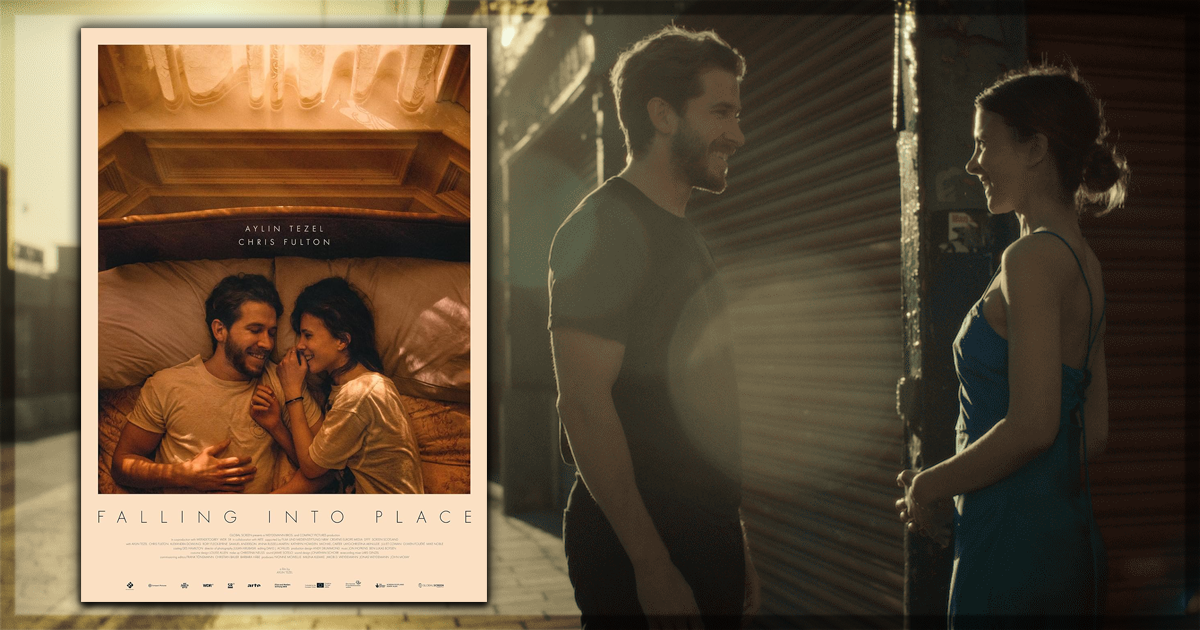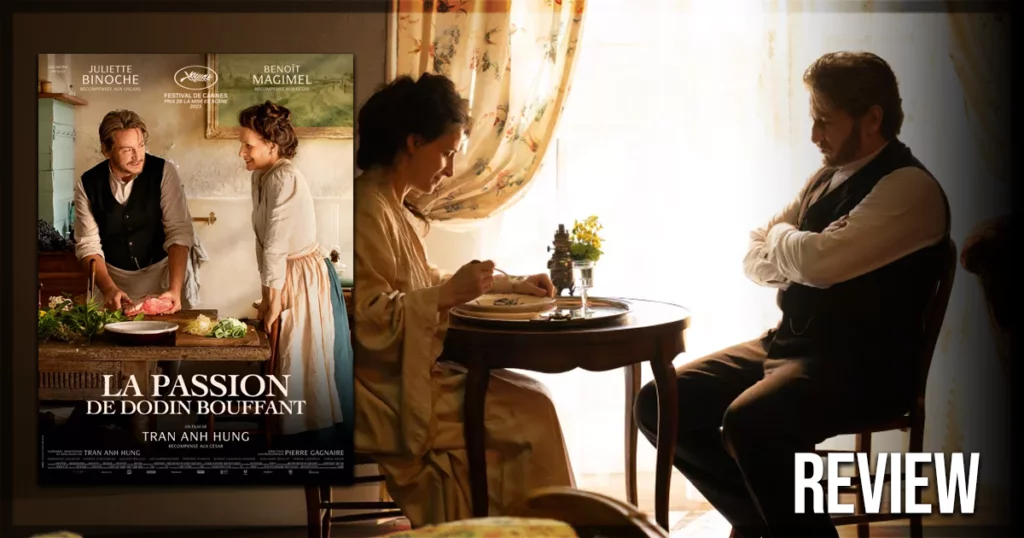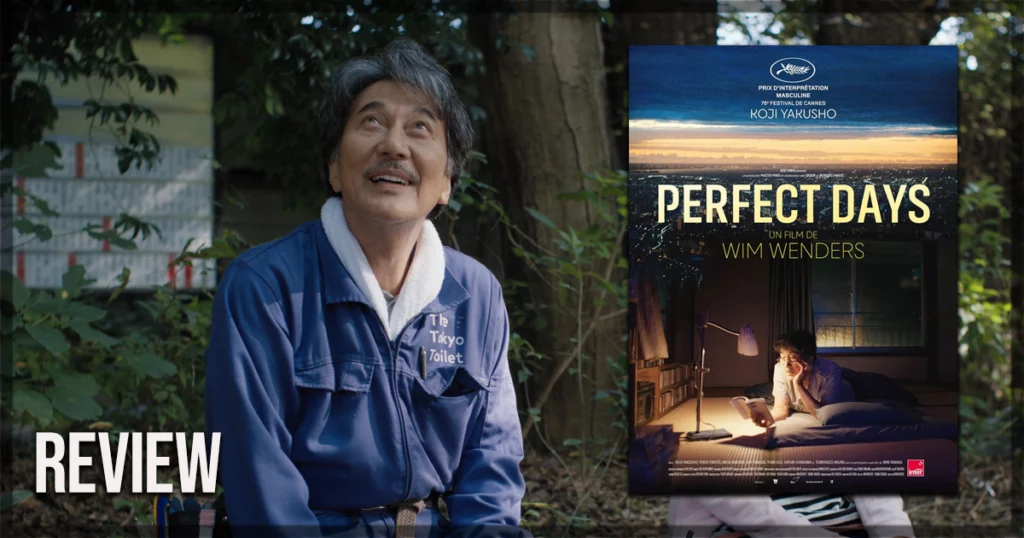Love stories often rely on two characters being in the right place at the right time. Falling Into Place – a melancholic slow-burn love story from writer/director Aylin Tezel – follows in the timeless vein of the recent phenomena Normal People and One Day: the meeting of its characters may feel like destiny, but trials of time, place, and their own inner struggles threaten to kill the relationship before it has the chance to blossom.
The Scottish island of Skye provides the beautiful yet brutal backdrop for the initial meet-cute. Kira (Tezel), a German living in London, sees her would-be romantic getaway go horribly wrong when she and her boyfriend meet up. In a pub, she locks eyes with Ian (Chris Fulton), another London resident who has returned home to deal with family issues – and his own emotional baggage relating to his father’s and sister’s struggles. It feels like destiny, but keeping reality at bay is impossible when they are on the run from themselves. Cracks begin to show after a whirlwind first night and a trip deeper into the mountains towards Ian’s home. The budding romance’s bubble does not burst with a dramatic fight scene but instead crumbles under the pressures of real life.
Falling Into Place offers a clear-eyed look at relationships and mental health struggles
When someone is struggling to keep their own head above water, romance can seem like a lifeline, but the unreality of this fantasy is the heart of Falling Into Place. Mental health-aware romantic dramas are a welcome modern addition to the genre; many beloved works of previous decades do not deal as comfortably in the grey areas of life. Depictions of DSM-5-recognized disorders can be stereotypical and overblown while choosing to depict mental health struggles through a nebulous, undefined lens can risk sensationalizing, trivializing, and/or romanticizing such struggles. It is a hard line to walk in fiction. While viewers’ mileage may vary based on their own experiences, Falling Into Place is a largely successful and very clear-eyed look at the effect two people’s separate mental health struggles have on their lives and in the ways they relate to others.
Kira and Ian are frequently difficult to root for or sympathize with – several series of actions and choices seem, to the external observer, completely and irrevocably unwise. Fulton, as Ian, is particularly adept at walking the prickly line between outright objectionable behavior and understandable reactions to his circumstances. Tezel’s script asks viewers to grapple with their own frustration by not rushing through each challenge the two protagonists come up against. These breathing spaces give each challenge they come up against space to resolve into a natural, unforced solution – even if a temporary one.
The eyes are the all-important storytellers in Falling Into Place
Tezel’s background is in acting and dance, and she directs Falling Into Place with a keen awareness of how bodies interact with each other and with the wider space. But in wide shots and close-ups, eyes are the all-important storytellers, and she trusts herself and her fellow actors enough to eschew possibly clunky expository dialogue in favor of stolen glances or silent staring. Yearning – be it for love, for a better life, or for a better sense of ease with one’s self in the world – is the driving emotion of these moments.
While the situation with Ian’s family is uncertain for much of the film and best left unspoiled, the side characters in Kira’s and Ian’s London lives – including other romantic partners – are largely written as sympathetic interactors who benignly or actively push Kira and Ian towards addressing their demons. No one gets the same rounded treatment as the protagonists do, but the grace continually extended from these supporting figures into the central floundering lives is just the right side of earned.
Like last year’s rom-com Rye Lane, Falling Into Place feels like it is set in a recognizable modern London, though it lacks the former film’s neighborhood specificity: sometimes, it feels as if Kira and Ian are living in two separate cities, which is accurate to the size of the city and the time one can spend crossing small sections of it. In this view of London, the economic precarity facing many young artistic professionals is laid bare and contrasted strongly with the wilderness and freedom of Skye. Each place’s role in Kira and Ian’s love story and their separate journeys of self-discovery may defy expectations.
Falling Into Place is a comfortingly familiar romantic drama
If this all veers towards material and storytelling modes seen before, it all has been. Falling Into Place does not come close to reinventing the romantic drama. Indeed, it fits so neatly in step with other popular films and television shows that it feels like a comfortingly familiar entry into the canon rather than an entirely new direction. This is not inherently a problem, nor is it a disservice to the film’s story or craft; romantic comedies and dramas are often popular due to this sense of well-trod paths. If anything, the popularity of these complicated modern love stories is a testament that people want to see their lives and day-to-day struggles reflected, with a hint of the fantasy that maybe there is a person out there who will let them forget their problems for a little while.
Falling Into Place is now playing at the Glasgow Film Festival.
Are you interested in Aylin Tezel’s Falling Into Place? Let us know on X @MoviesWeTexted.
You might also like…
Review: ‘The Taste of Things’ is a delectable delight from Trần Anh Hùng
Review: ‘Perfect Days’ has a simple premise but profound meaning



